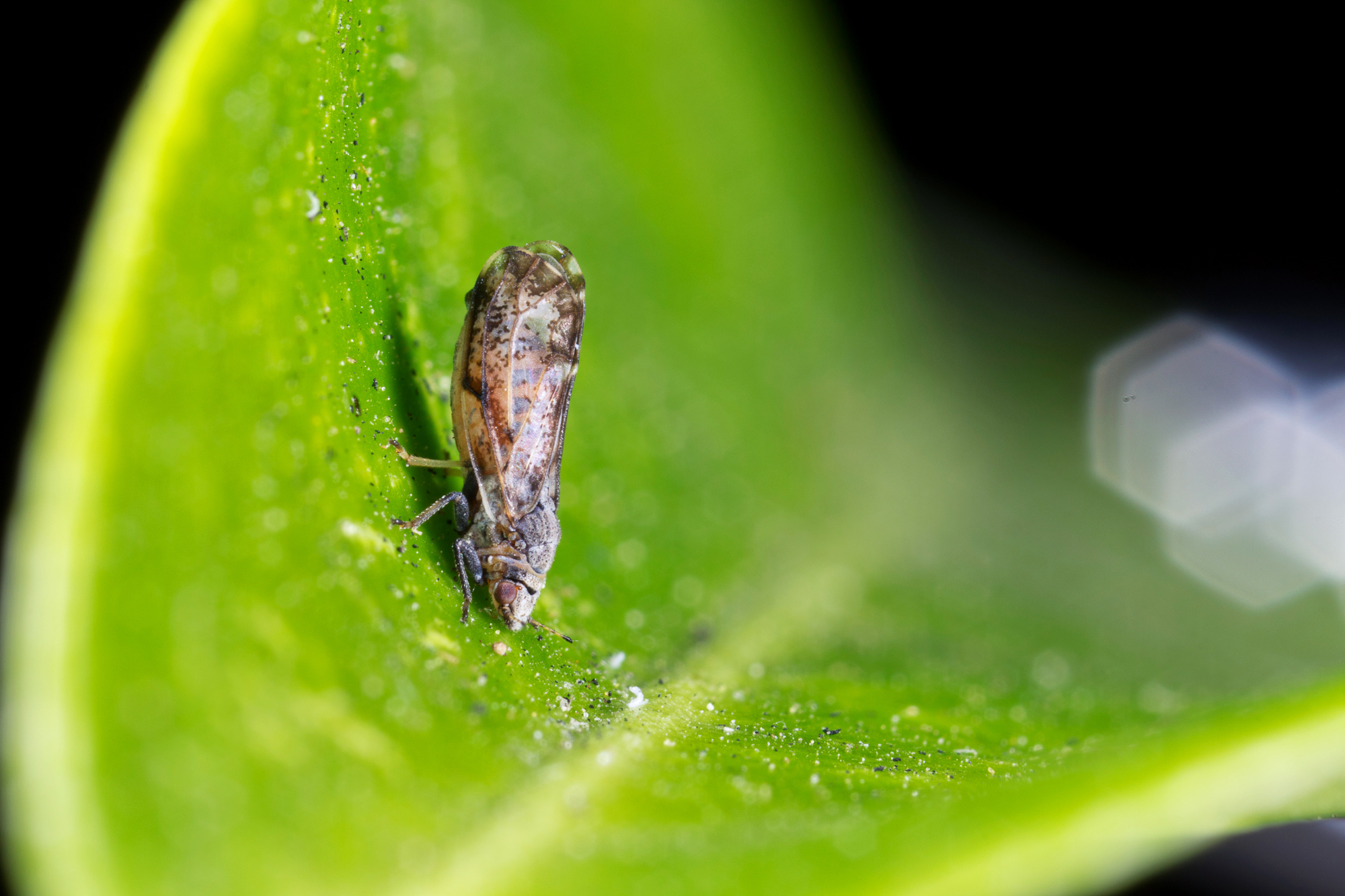
From Marcy Martin, President of Citrus Board
We would like to share with you the status of promising preliminary research that possibly could have important ramifications for California citrus growers. Dr. Hailing Jin, a geneticist at the University of California, Riverside (UCR), has conducted greenhouse trials on young citrus plants to investigate the role of citrus-derived peptides in the battle against the deadly disease huanglongbing (HLB).
Some of Dr. Jin’s research in this area was funded in 2018-19 as Citrus Research Board (CRB) project #5200-195, Develop effective therapies to cure HLB using a novel class of citrus-derived antimicrobial peptides. The study was conducted within the University of California, Davis Contained Research Facility on year-old Madam Vinous, Washington Navel and Lisbon lemon plants that were treated through either foliar sprays or pneumatic injections.
The initial $100,000 investment by you, the growers, then served as a launching pad for a nearly $4 million grant from the U.S. Department of Agriculture-National Institute of Food and Agriculture (USDA-NIFA) to continue study on the project now titled Develop therapies using a novel class of citrus-derived dual-functional antimicrobial peptides to cure HLB trees and to protect healthy trees from infection. USDA-NIFA funding for this phase went into effect in February of last year and is scheduled to continue through January 2023.
While the long-term effectiveness of this research has not yet been confirmed or published in a scientific journal and the project is still in its early stages, Dr. Jin’s promising findings have resulted in a commercial licensing agreement between UCR and Invaio Sciences. It is not uncommon for researchers to team with commercial licensing partners during the early phases of their studies. In this case, more work still needs to be done to confirm the robustness and viability of this treatment. Additional greenhouse trials are being initiated by Dr. Jin and her team at the citrus-specific Bio-Safety Level-3 Laboratory in Riverside, California. It also is expected that field trials will be conducted to show the effectiveness of the treatment under commercial grove conditions.
Earlier this week, UCR issued a news release entitled UCR Discovers First Effective Treatment for Citrus-destroying Disease, which shares the news of a licensing agreement being reached with Invaio Sciences. While the release was understandably enthusiastic about potentially promising research and we are heartened by the commercial interest in this peptide, we are looking forward to reviewing complete studies on the effectiveness of this therapy in greenhouse and field studies.
Importantly, this is not the time to let down our guard. It continues to be critical for all citrus growers in the state to remain extremely vigilant in protecting their groves against the Asian citrus psyllid and HLB. The psyllid arrived from Mexico in 2008 and is now firmly established in southern California. The first HLB-positive tree was found in residential Los Angeles County in 2012. As of July 3, 2020, 1,926 HLB-affected trees have been identified and removed to slow the spread of the disease in residential areas of Los Angeles, Orange, Riverside and San Bernardino counties. Unlike Florida, where HLB has decimated commercial citrus groves, California growers invested in research early through the CRB and have been diligent in applying best-management practices; therefore, the disease has not yet been detected in any commercial groves. The CRB will continue to focus intensive efforts on a variety of promising research to find a solution to HLB.
Moving forward, we at the CRB are proud to work on behalf of the 3,300-plus California citrus growers to invest in key studies to find a solution to HLB. Citrus growers always have been resilient and resourceful. Together, we will look toward the horizon for a solution to HLB.
In the meantime, we continue to monitor and review progress in potential therapies, new HLB-resistant varieties, better psyllid control strategies and more. We are enthusiastic about the commercial interest in HLB therapies and look forward to being able to share a range of potential approaches for California citrus growers as research progresses and matures. If you have any questions or would like additional information about the status of this research, please contact CRB President Marcy Martin at 559.708.3791 or marcy@citrusresearch.org.








